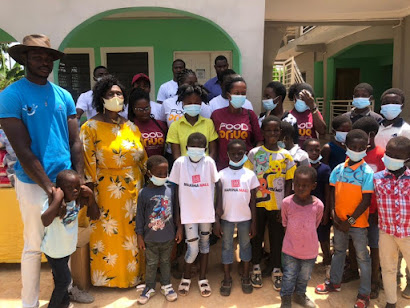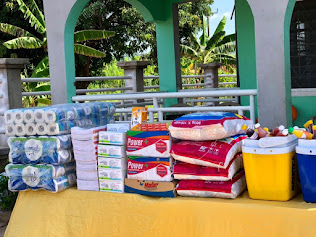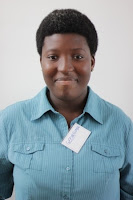FOR IMMEDIATE RELEASE
Students and teachers will celebrate the achievements of Lab_13 Ghana, a pilot project which has been running in the Bosomtwe District since March, on Saturday 1 August.
Lab_13, a space dedicated to practical experimentation and hands on learning, is aiming to change the way science is taught in schools, starting with the Bosomtwe District.
Pushing books aside, instead of pictures of circuits, students of Lab_13 Ghana have wired up standing fans, handkerchief driers, and moving boats. Instead of reading about how aeroplanes can fly, students have explored principles of aerodynamics with paper aeroplanes, ping pong balls and straws.
The closing ceremony will be held at the lab's host school, Agape Academy, Jachie, Bosomtwe District, and will take place between 9am and 3pm. The programme wil be run by the Lab_13 Ghana Student Management Comittee, 7 students from JHS1 and JHS2 who oversee the running of the lab space.
The ceremony will showcase some of the activities LAb_13 Ghana have carried out over the last four months and will include speeches from the Students Management Committee, science demonstrations, and cultural displays. Work from the Lab_13 students will be exhibited, including boats from the Lab_13 Titanic 2015 inter-schools boat making competition, and inventions and creations from the Lab_13 Saturday Science Club.
The Lab, which has been been working closely with the Kwame Nkrumah University of Science and Technology (KNUST), has provided hands-on learning opportunities to over 800 students from 30 different schools overt the last four months.
Saviour Okine, alumnus of KNUST, and Scientist in Residence of Lab_13 Ghana, is one of the facilitators making the lab a success.
The ability to solve problems through practical scientific approaches is a prerequisite in the development of generational leaders. Lab_13 Ghana gives students the opportunity to question and to experiment, it provides a space where they can harness the skills they, and Ghana, need for success, growth and positive change.
Teachers in the Bosomtwe district have been extremely positive about the lab.
Obed Adjei, Science Master at the Future Academy, Adagya said, "There has been a tremdous impact on my students from the Lab_13 Ghana project. Not only has Lab_13 helped encourage as an interest in science but it has also improved the confidence levels, communication skills and practical abilities of my students."
The end of term celebration will mark the end of phase 1 of the project. Phase 1 was supported through an online crowd-sourcing campaign run by UK Science charities, Lightyear Foundation, and Ignite Futures.
Moving forward the project is looking for support through local sponsorship. Phase 2 of the project sees the Lab expands to ore districts through the support of an Advisory Board made up of Ghanaian experts in education, science and industry.
Gameli Adzaho, member of the Ghanaian Advisory Board for the project said, "As a science educator, I recognise the potential of the Lab_Ghana model in transforming the cognitive and problem-solving skills of the pupils under training.
Having interacted extensively with Lab_13 Ghana junior scientists and SiRs, I have no doubt the project is igniting dreams and shining the spotlight on the brilliance of the pupils and the difference they can make to Bosomtwe and beyond.
we want to take this further afield, maybe one day to the other parts of Ghana. What we need now are funds and other logistics to bring our aspirations to life. Too many times good ideas in Ghana wither away due to lack of support.
The Ghanaian Advisory Board is committed to partnering with interested individuals and organisations to ensure that the project thrives and continues making the amazing impact already in motion."
ENDS
For further information, please contact the Lab_13 Ghana:
Lab_13Ghana(at)lightyearfoundation(dot)org































